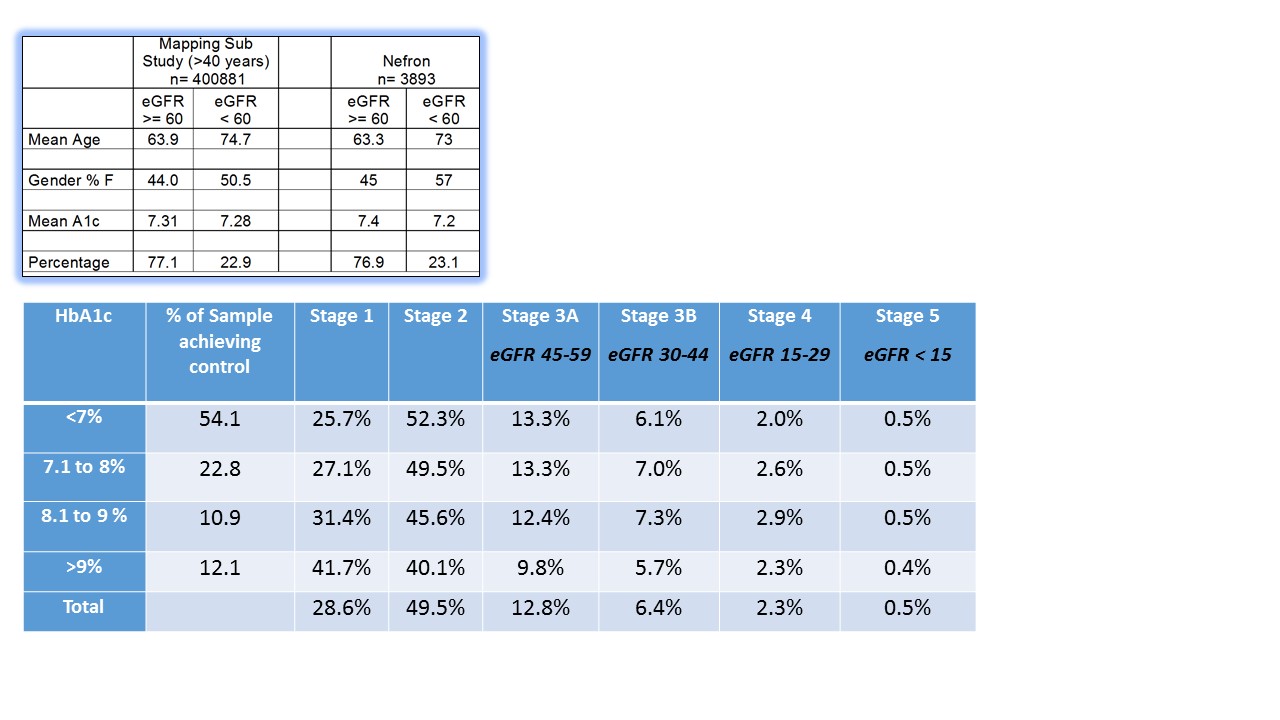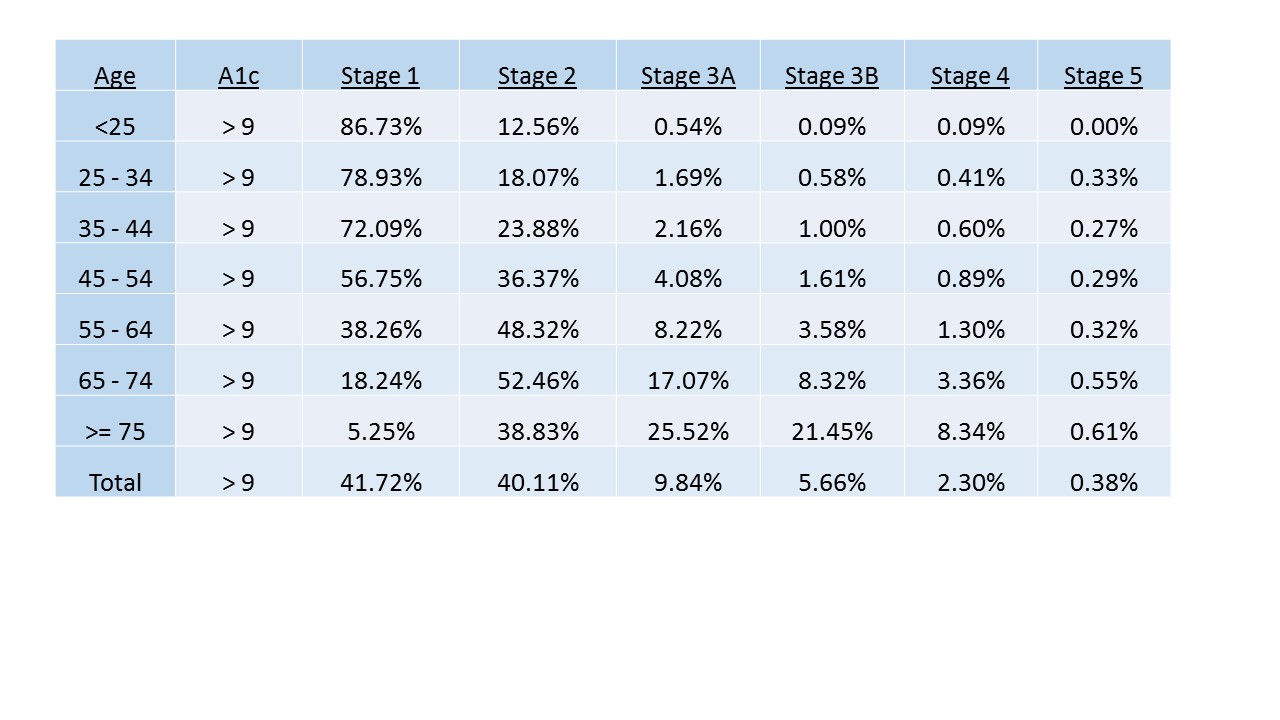Poster Presentation Australian Diabetes Society and the Australian Diabetes Educators Association Annual Scientific Meeting 2014
Is there a relationship between glycaemic control and CKD rates in patients diagnosed with diabetes in GP - a sub study of the Mapping Glycaemic Control Across Australia Study (MGCAA) (#370)
BACKGROUND
Diabetes and CKD are risk factors for CVD. CKD in diabetes is associated with increased adverse outcomes and diabetes is a risk factor for CKD. Control of glycaemia, blood pressure and lipids are all within the scope of skill of GP and subsequent CV events could be prevented. Optimising glycaemic control in diabetes has been shown to reduce CKD rates.
AIM:
To use pathology data to identify a relationship between HbA1c and stages of CKD
METHODS:
Private pathology laboratory data for the 2012 calendar year provided was cleaned and duplicates removed; - Reports by date, gender, postcode, HbA1c value, TC, HDL, LDL, TG’s, fasting BGL, random BGL, eGFR, creatine, microalbumin, albumin creatinine ratios results were provided. We report the CKD stages by HbA1c range
RESULTS:
The MGCAA population is similar to the Nefron (2)population studied


DISCUSSION AND CONCLUSION:
Analysis at a HbA1c level confirms that CKD rates appear to be independent of HbA1c with eGFR rates in the 45-59 range similar across the <9% HbA1c ranges and less so in the >9% range suggesting that only12-14% need a dose adjustment and in the eGFR range < 44 only 8-10% of patients are not suitable for renal excreted hypoglycaemic agents for any Hba1c range. As expected CKD rates are higher in the older age group particularly the > 75 years where HbA1c targets may not need to be as stringent (1). These differences warrant further analysis at a postcode, ML, age, gender level of filter to identify geo-epidemiological clustering and guide interventions.
- Ismail-Beigi F, Moghissi E, Tiktin M, Hirsch IB, Inzucchi SE, Genuth S. Individualizing glycemic targets in type 2 diabetes mellitus: implications of recent clinical trials. Ann Intern Med 2011;154: 554–559
- Merlin C Thomas, Andrew J Weekes, Olivia J Broadley, Mark E Cooper and Tim H Mathew. The burden of chronic kidney disease in Australian patients with type 2 diabetes (the NEFRON study). MJA 2006; 185: 140–144